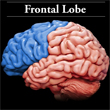Tuesday, 7 January 2014
Human Frontal Cortex Differs Even Genetically

The basic goal of many neuroscientific studies is to determine what makes human brains so different from those of other animal species, and in particular those of our cousins, the great apes. One such study was conducted recently by geneticist Genevieve Konopka and her team, and it yielded some very interesting findings about the frontal lobe of the brain.
One difference that scientists already knew about was that the frontal lobe accounts for a greater proportion of the total surface area of the cortex in humans than in other species (29%, compared with 17% in rhesus monkeys, 7% in dogs, and 3.5% in cats). But Konopka and her team studied differences in the expression of the genes for the various neurons that compose the frontal cortex. Specifically, the team compared the genes that are expressed (and therefore, active) in the frontal cortex of humans with those expressed in the frontal cortex of chimpanzees and macaques. The geneticists found that many of these genes are expressed differently in humans compared with these two other primate species.
However, when the team compared the expression of the genes for the neurons in another brain structure—the caudate nucleus—they did not find such differences among these three species. In other words, the pattern of gene expression seemed to have remained largely the same over the course of evolution.
Konopka’s findings show that the genetic transcriptional networks for certain neurons in certain brain structures have undergone faster evolutionary remodelling than those for others. This study thus opens another avenue for understanding the human-specific aspects of the brain.
*
Another recent study (see third and fourth links below), in which some of the same researchers participated, focused on another fascinating phenomenon: DNA methylation. DNA methylation is an epigenetic modification; it does not directly affect the sequence of nucleotides in the DNA molecule itself, but instead involves certain compounds that can bond to this molecule over an individual’s lifetime and that may even be transmitted from one generation to another, thus making the phenomenon of genetic inheritance even more complex.
The authors of this study found lower levels of DNA methylation in the human brain than in the chimpanzee brain. This led the authors to raise several questions, in particular regarding humans’ vulnerability to diseases such as cancer and numerous mental disorders that are less common in our primate cousins.
![]() Increased complexity in certain regions sets apart human and chimp brains
Increased complexity in certain regions sets apart human and chimp brains
![]() Human-Specific Transcriptional Networks in the Brain
Human-Specific Transcriptional Networks in the Brain
![]() Some chimp-human differences are epigenetic
Some chimp-human differences are epigenetic
![]() Divergent Whole-Genome Methylation Maps of Human and Chimpanzee Brains Reveal Epigenetic Basis of Human Regulatory Evolution
Divergent Whole-Genome Methylation Maps of Human and Chimpanzee Brains Reveal Epigenetic Basis of Human Regulatory Evolution
Evolution and the Brain | Comments Closed







